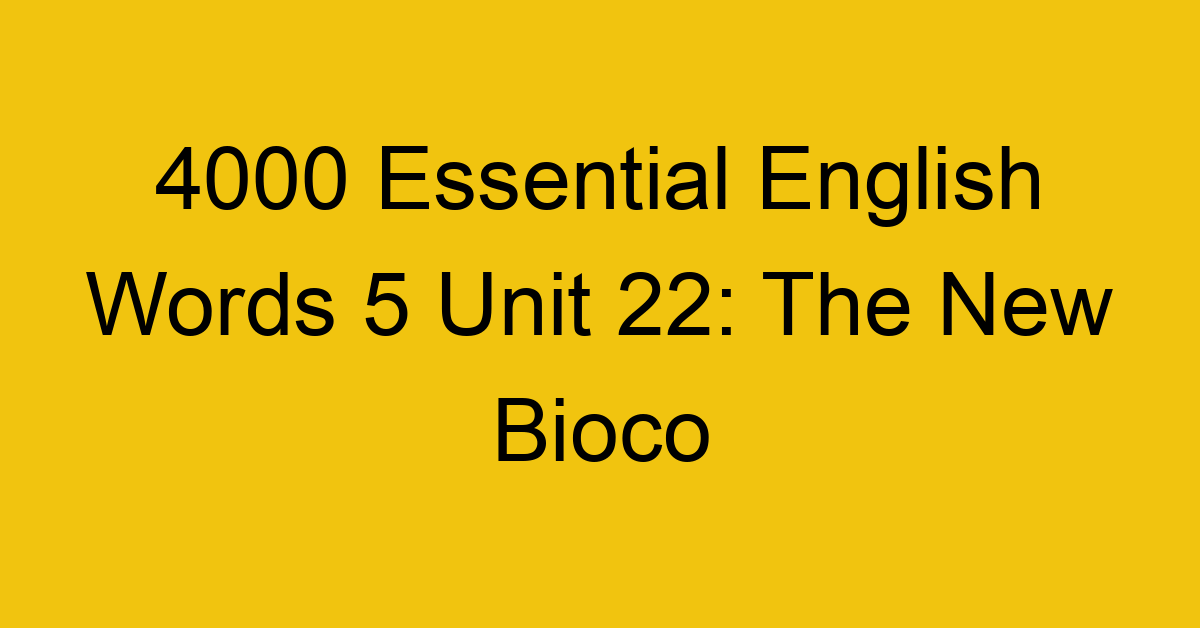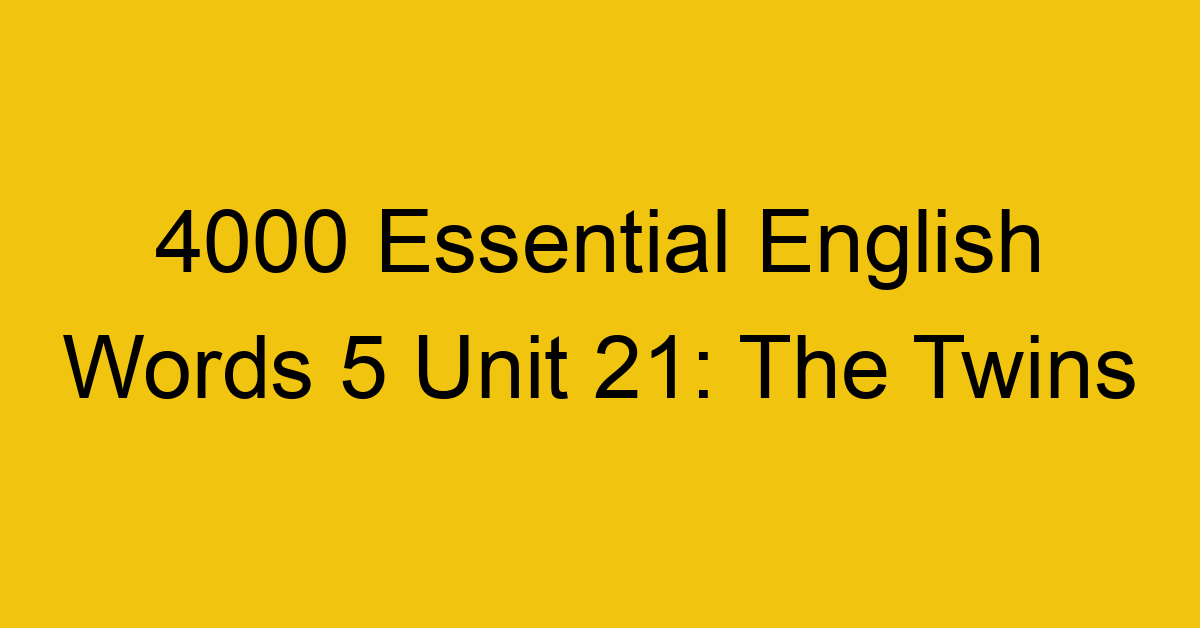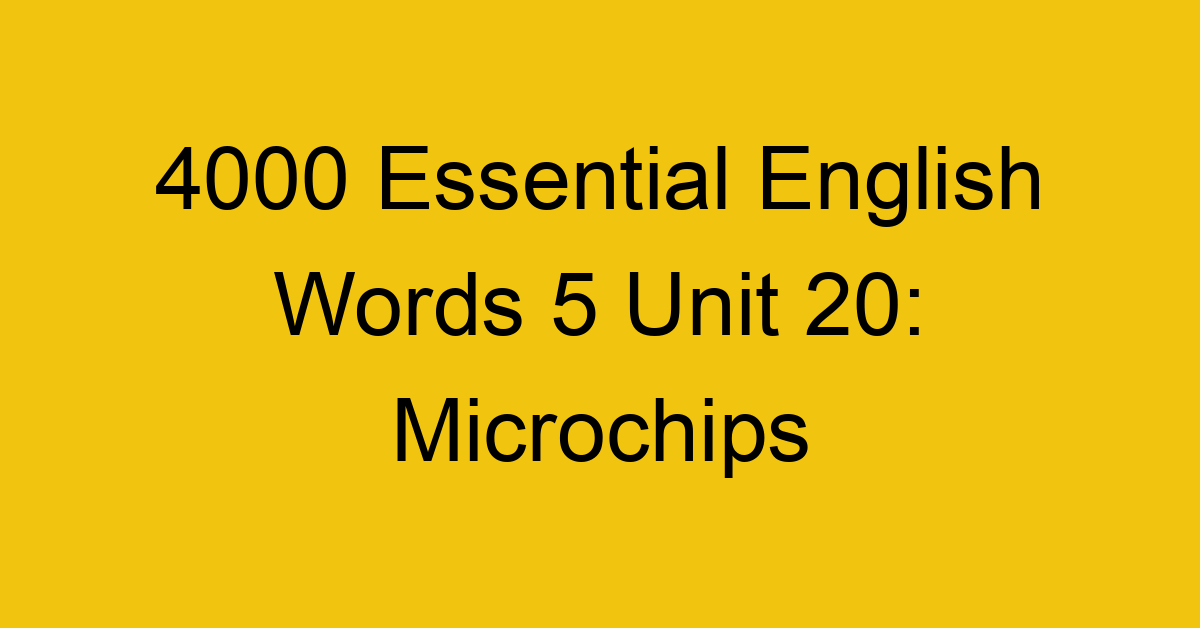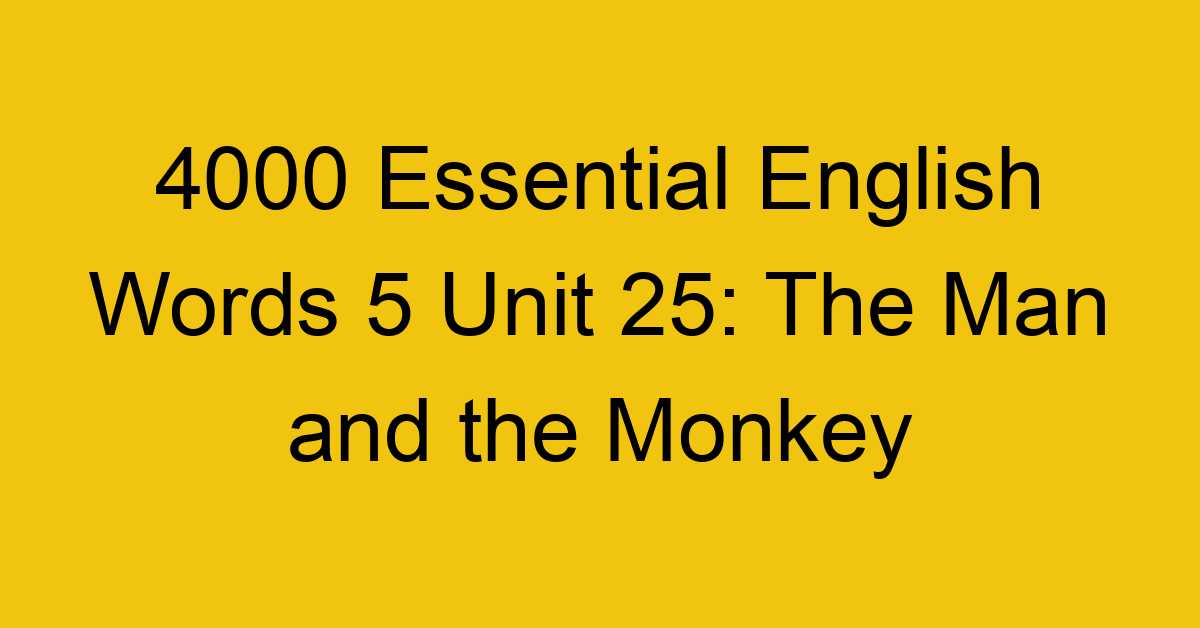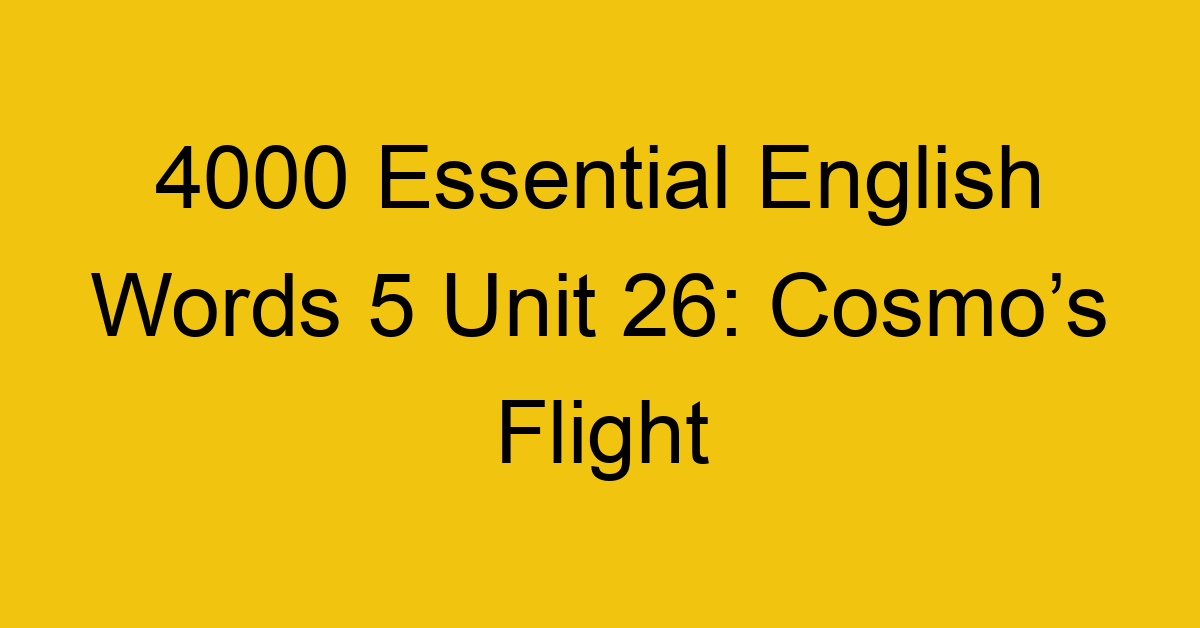4000 Essential English Words 5 Unit 23: How Comet Got His Tail
Word List
- astronomical [ˌæstrəˈnɒmikəl] adj.
If something is astronomical, then it is extremely large.
→ It’s an astronomical distance between the Milky Way galaxy and the nearest galaxy.
- atom [ˈætəm] n.
An atom is the smallest unit of a substance.
→ A molecule consists of a combination of two or more atoms.
- breadth [bretθ] n.
Breadth is the distance from one side to the other side of something.
→ The breadth of the northern wall of the house is twenty meters.
- circumference [səˈkʌmfərəns] n.
A circumference is the distance completely around a circular object.
→ The circumference of the Earth is obviously much larger than a baseball’s.
- comet [ˈkɒmit] n.
A comet is an object in space made of ice and rock with a tail of glowing dust.
→ Comets take many decades to complete an orbit around a star.
- crater [ˈkreitər] n.
A crater is a large hole in a planet’s or moon’s surface.
→ They could clearly see the big crater on the moon through the telescope.
- crescent [ˈkresənt] n.
A crescent is the curved shape lit on the moon’s face during its early and late stages.
→ Ten days ago the entire moon was bright, but now only a small crescent is shining.
- debris [ˈdəbriː] n.
Debris is the small pieces scattered from something wrecked or destroyed.
→ The debris from the cube scattered on the floor.
- despair [disˈpɛər] n.
Despair is the complete loss of hope.
→ After the other company won the account, our salespeople were filled with despair.
- embed [imˈbed] v.
To embed something means to place it firmly within a surrounding thing.
→ The logger embedded the ax into the wood after chopping several logs.
- fragment [ˈfrægmənt] n.
A fragment is a small part of something.
→ After the light broke, there were fragments of glass to clean up.
- galaxy [ˈgæləksi] n.
A galaxy is any extremely large collection of star systems.
→ Our solar system is located in the outer area of our galaxy.
- gigantic [dʒaiˈgæntik] adj.
If something is gigantic, then it is extremely large.
→ Some dinosaurs were so gigantic that they were the size of buildings.
- gloom [gluːm] n.
Gloom is a state of being almost completely dark.
→ In the gloom of the morning, it was difficult to see the boat on the lake.
- radiate [ˈreidieit] v.
To radiate means to send out energy or heat.
→ The heat from the fireplace radiated throughout the room.
- roam [roum] v.
To roam means to move around without a plan or purpose.
→ All day the cows roamed around the field eating grass.
- solitary [ˈsɒliteri] adj.
If something is solitary, then it is lonely or the only one.
→ The only thing in the room was a solitary chair.
- spectrum [ˈspektrəm] n.
The spectrum is the full range of color ranging from red to violet.
→ You can see the entire spectrum in a rainbow.
- sphere [sfiə:r] n.
A sphere is a three-dimensional round shape, like a ball.
→ The balloons were inflated into a variety of colorful spheres.
- status [ˈsteitəs] n.
Status is the position of something or someone in relation to others.
→ She had achieved the status of being the smartest girl in the class.

